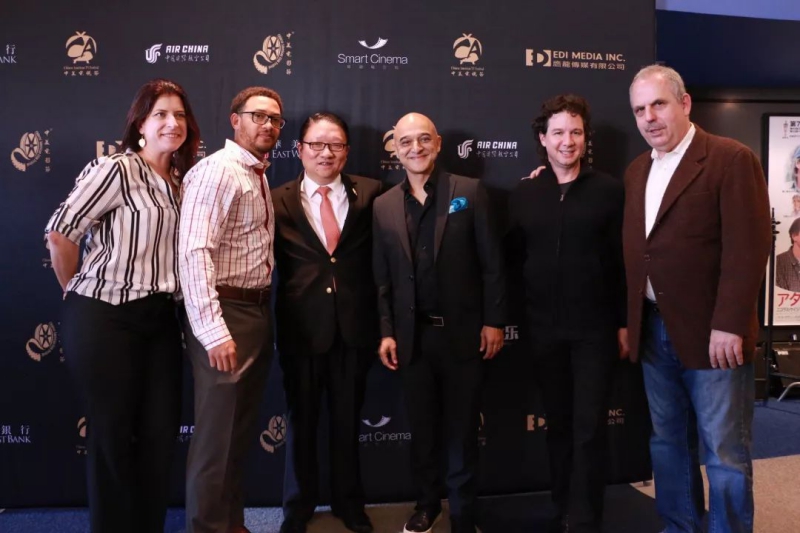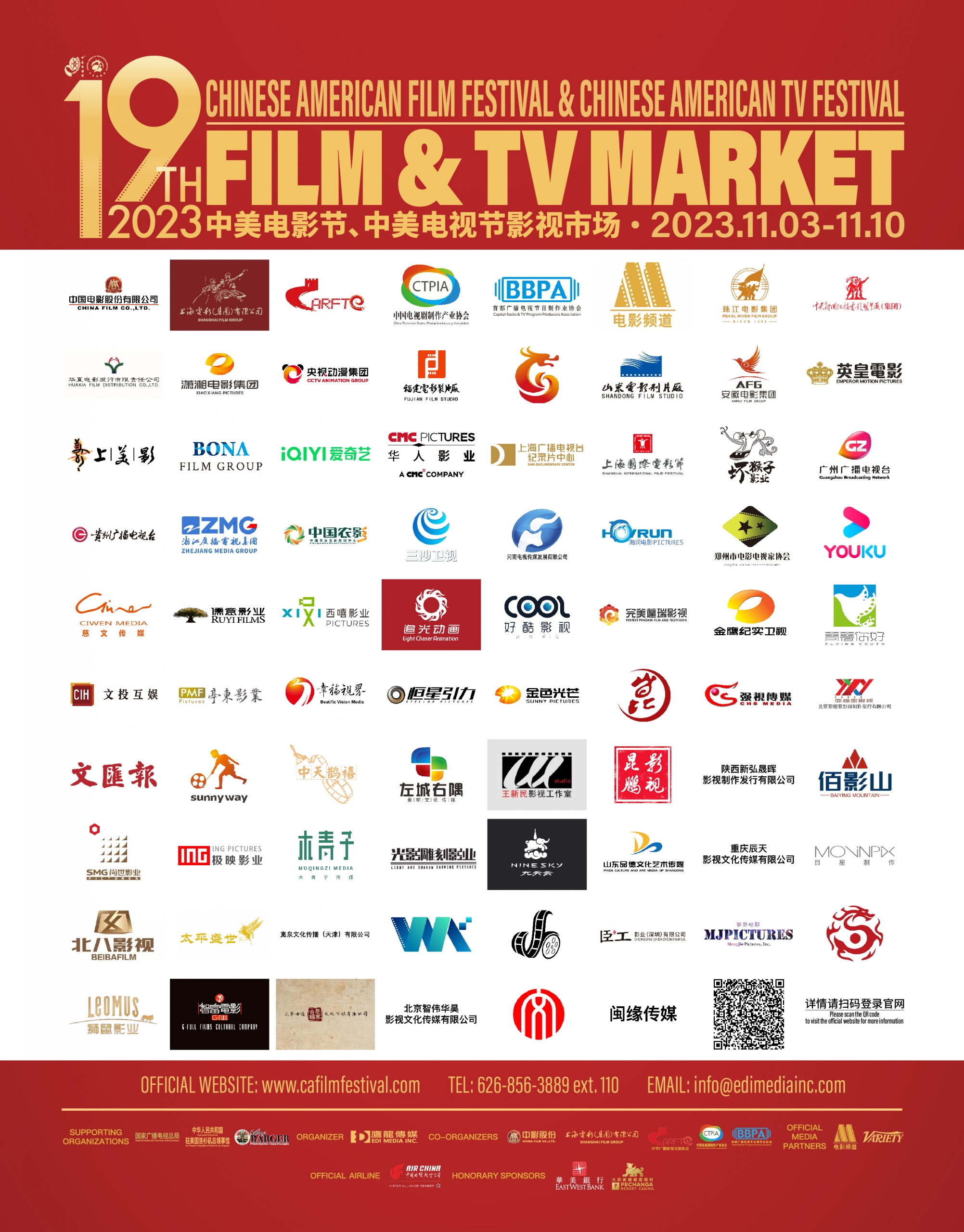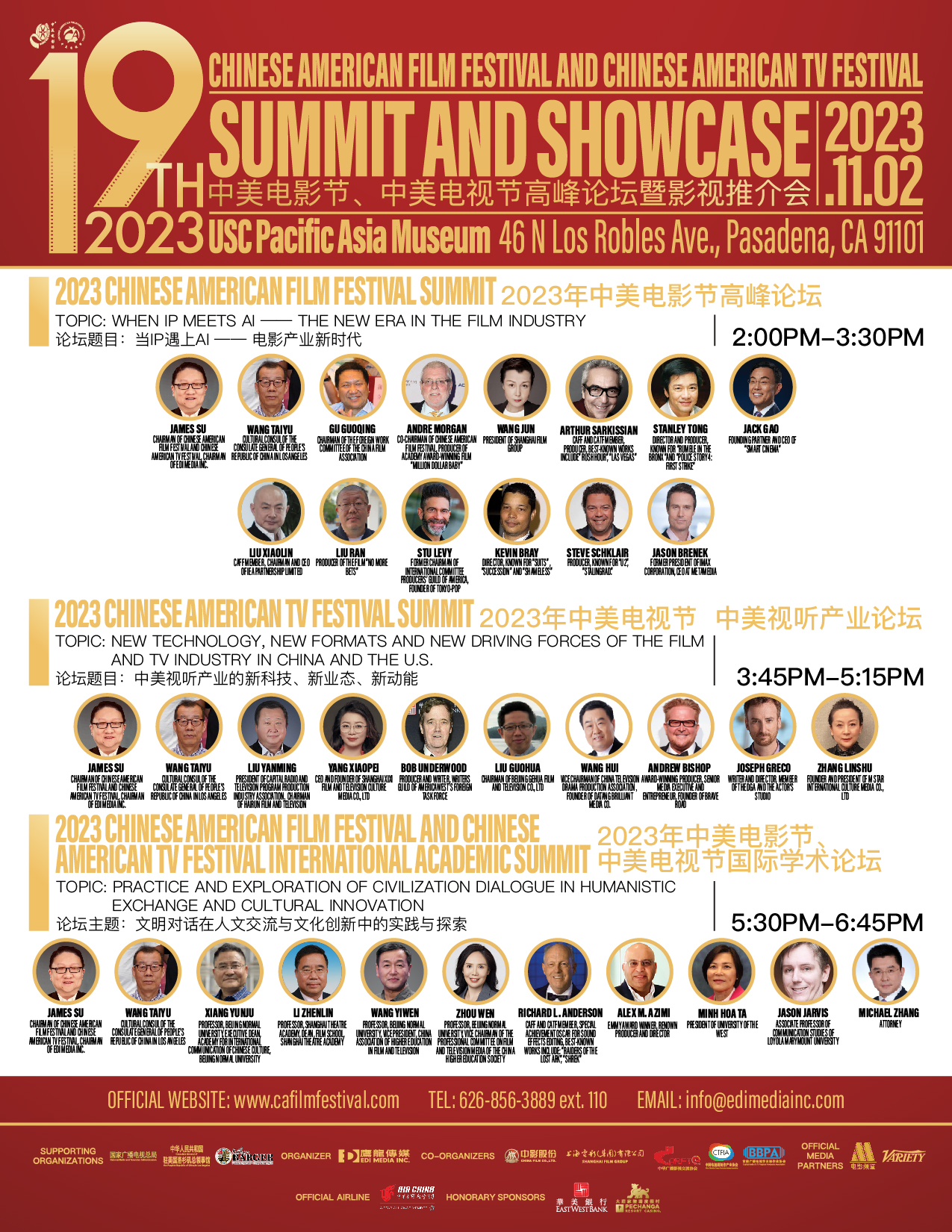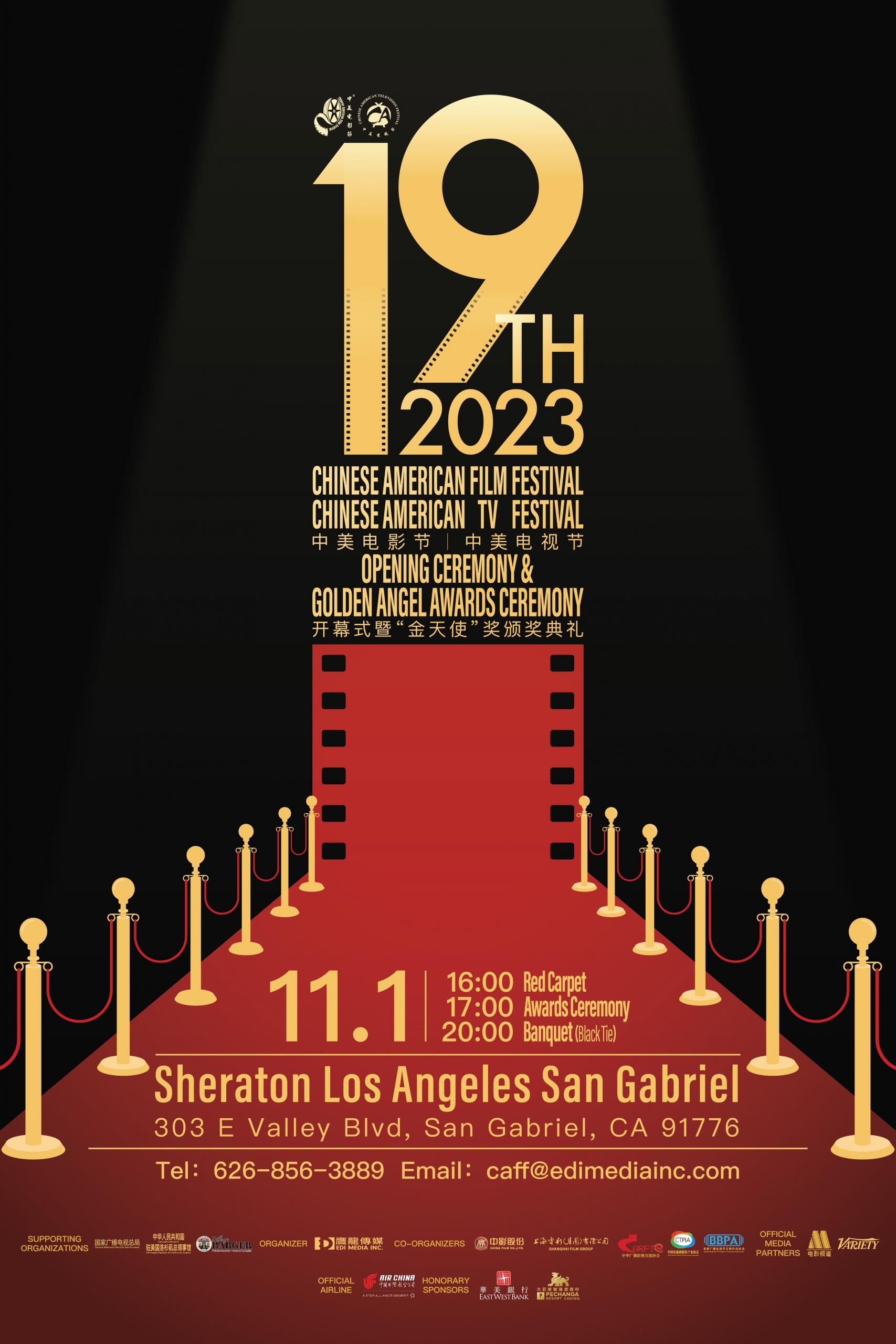One of the main events during the CAFF & CATF was the Co-Production Summit and Film & TV Market, which was held on October 29th at the Writers Guild Theater in Beverly Hills. Representatives from China and the U.S. had discussions on: “Future trends of U.S. and China film co-production and cooperation”; “How to build a globally successful intellectual property” and “Traditions and innovations of Film/TV in the U.S. and China.” CAFF and CATF is the most successful platform for cooperation and business between the Chinese and American film and TV industry.
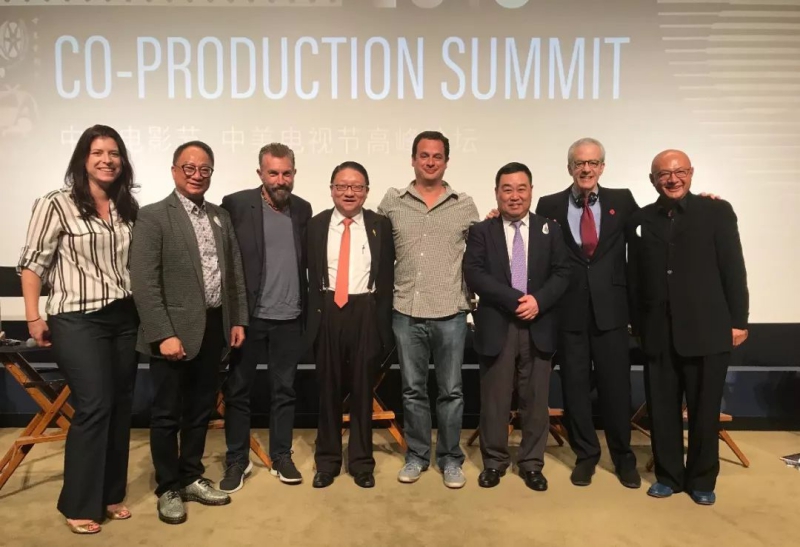
Some distinguished guests who participated in the discussions included the Chairman of the Board of China Film International Media Co., Ltd and renowned director, Stanley Tong; Chairman of The China Television Drama Production Association and director, You Xiaogang; Chairman and CEO of Pandemonium Films, Co-Chairman of the Chinese American Film Festival, Producer of Academy Award winning film, Hacksaw Ridge Bill Mechanic; SVP Of Feature Development and Acquisitions at Alcon Entertainment, Co-Producer on two-time Oscar winning film “Blade Runner 2049”, Carl Rogers; Writer of Crazy Rich Asians, Adele Lim; and Executive Producer of The Walking Dead, Fear the Walking Dead and Partner/CEO of Skybound Entertainment, David Alpert.
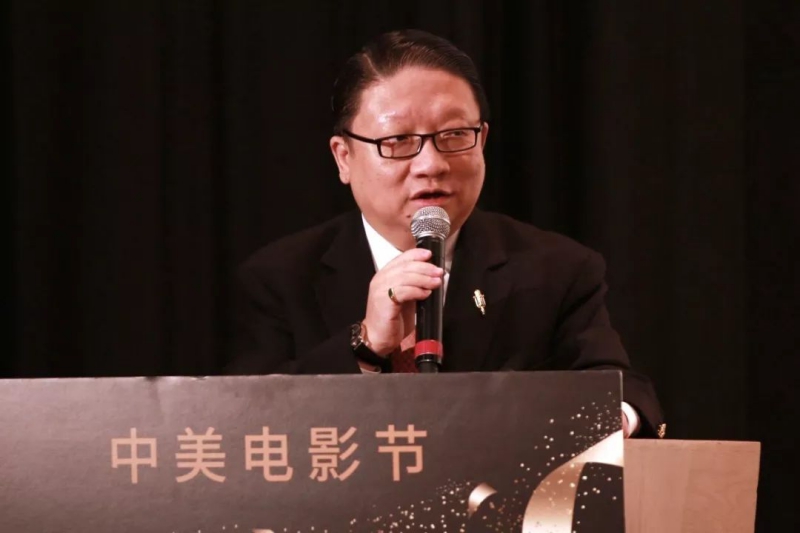
Chairman of the CAFF and President of EDI Media Inc., Mr. James Su, expressed that China and the United States are both culturally rich with film and TV opportunities that can lead to cooperation, which is beneficial to not only the prosperity and development of the industry itself, but also to mutual understanding and friendship between the two countries. In recent years, the film and television cooperation has only increased and became stronger between the two. The Co-Production Summit provides a chance for the industry leaders between the two countries to communicate with each other, which plays a positive role in promoting the cultural exchanges and practical cooperation between China and the U.S.
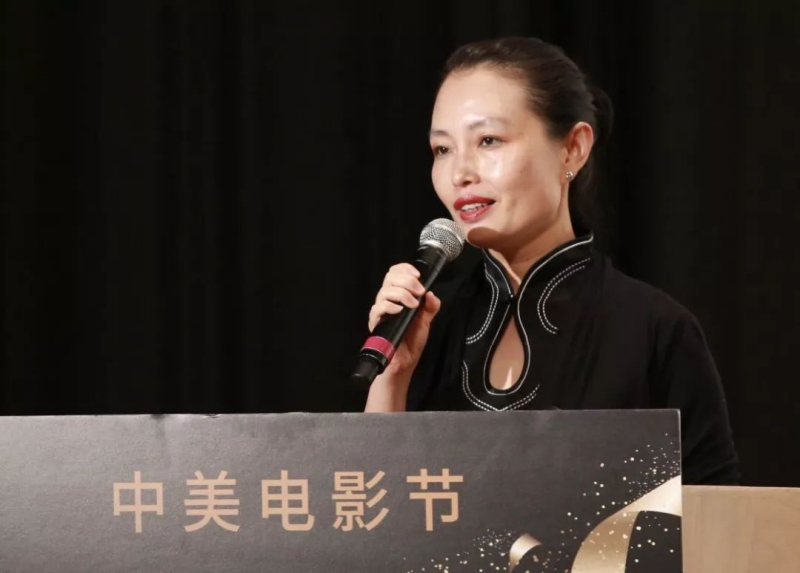
The cultural consulate of the Consulate General of People’s Republic of China in Los Angeles, Wang Jin, expressed her pleasure of attending CAFF & CATF. As an important aspect of CAFF & CATF, the Co-Production Summit plays an integral role in the communication and cooperation between Chinese & American film/television industry leaders. This year marks the 40th anniversary of the Chinese Economic reform and opening, and next year will also mark the 40th anniversary of the establishment of U.S and China’s diplomatic relations. With the development of the reform and opening in China and the development of China and U.S. relations, the Co-Production Summit provides a chance for in-depth conversations and understanding between Chinese and American filmmakers and executives that promote the film production exchange and practical cooperation between the two countries. On behalf of the Consulate General of People’s Republic of China in Los Angeles, she extended warm congratulations to EDI Media Inc. and wished the summit success.
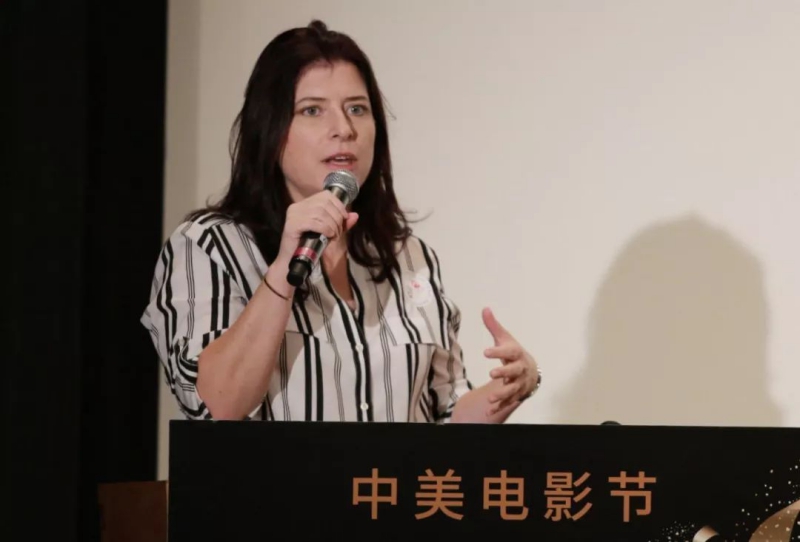
Chair of Producers Guild of America International Committee, Elizabeth Dell, expressed her appreciation to the organizing committee, President Su and to all the individuals who helped put together the summit. She said that the Producers Guild of America was very pleased to be involved in the summit and was honored to work with those involved in China and the United States, which not only set a bridge for film and television between the two countries, but promote the friendship and cultural exchange between China and the U.S. She wished all the events of the film festival a great success.
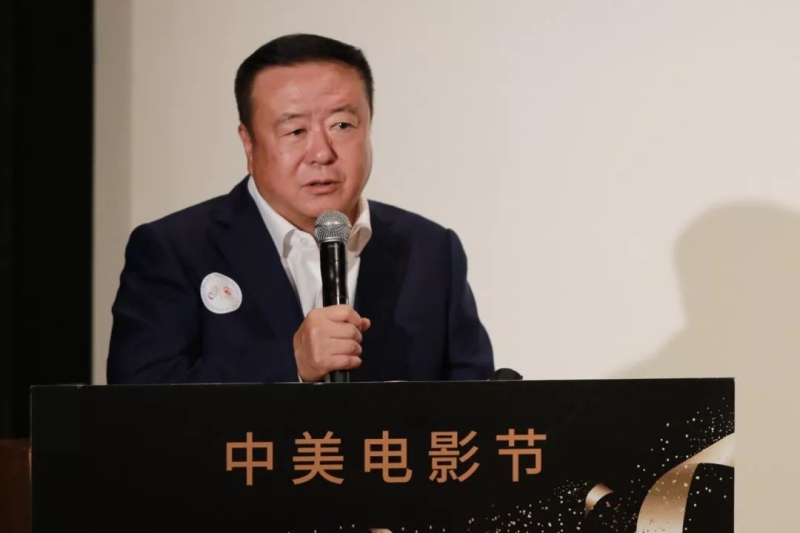
Chairman of The China Television Drama Production Association and director, You Xiaogang, said that China Television Drama Production Association and Capital Radio and TV Program Production Association came to the summit with great enthusiasm and high aspirations. The enthusiasm was for the long history of Chinese culture and the aspiration was for the growing communication and cooperation after the Chinese Economic Reform. He wished his best to the summit and recognized that it is now participated by more people so that the desire of communication can be gradually realized between everyone in the industry. Although the cultures are different between the U.S. and China, but they also have their commonality, which are human values and the basis of communication. The culture of film and television is the most vivid and direct because people can understand the meaning of a film even in an unfamiliar language. Therefore, the culture of film and television is International and without boundaries. He hopes to find out more similarities between Chinese and American cultures through platforms like the Co-Production Summit.

The topic of panel session one was “Future Trends of U.S. & China Film Co-Production and Cooperation,”. The Chinese film market is developing, as well as Chinese-American co-productions, such as The Meg, which had impressive box office results. However, some other works only bridge Chinese capital and Western production without the real integration of each others cultures therefore resulting in undesired outcomes. To be successful, we must learn from each other, for instance, combining the Chinese cultural IP and other sources with the American technical stories, and attaining the box office and respect for the co-production film. Film is the combination of art, economy and technology; it couldn’t be successful without any of these.
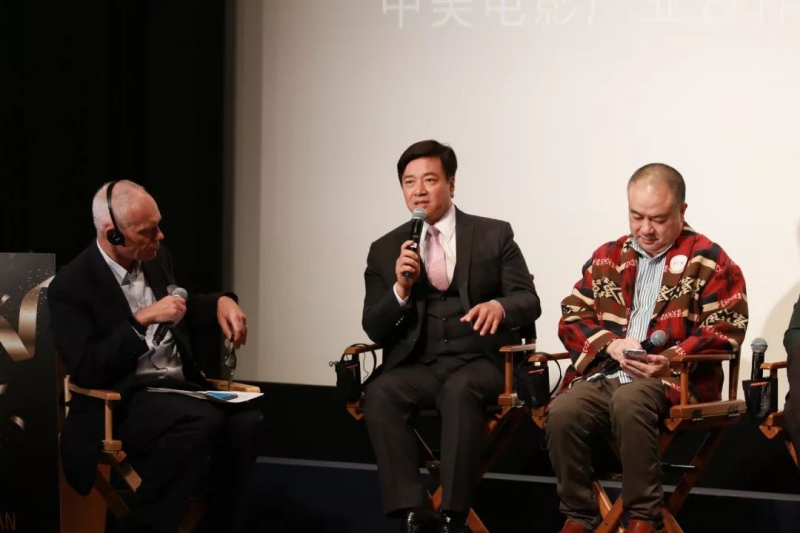 From Left: Moderator and Asia Bureau Chief of Variety,Patrick Frater; Producer, Director and Chairman of the Board of China, Stanley Tong; Famed director, writer, Chief Executive officer and Producer of The Spring-Time Group,Clifton Ko Chi Sum.
From Left: Moderator and Asia Bureau Chief of Variety,Patrick Frater; Producer, Director and Chairman of the Board of China, Stanley Tong; Famed director, writer, Chief Executive officer and Producer of The Spring-Time Group,Clifton Ko Chi Sum.
Director Stanley Tong shared that The Meg’s theme portrayed common elements of humanity, which is an innovation of Chinese and American co-production; this film used Hollywood’s technique and ways of storytelling. China and the United States are both partners and this will bring more space to the filmmakers for cooperation. The special effects from Hollywood production companies are excellent, but may not be accepted by Chinese audiences; so producers must consider the market first.
Director Clifton Ko Chi Sum said some co-production films achieved bad results because they shoehorned too many Chinese scenes and characters that didn’t quite fit.
Bill Mechanic agreed that if the story of a movie shares the values of two countries, they’ll be accepted by both audiences.
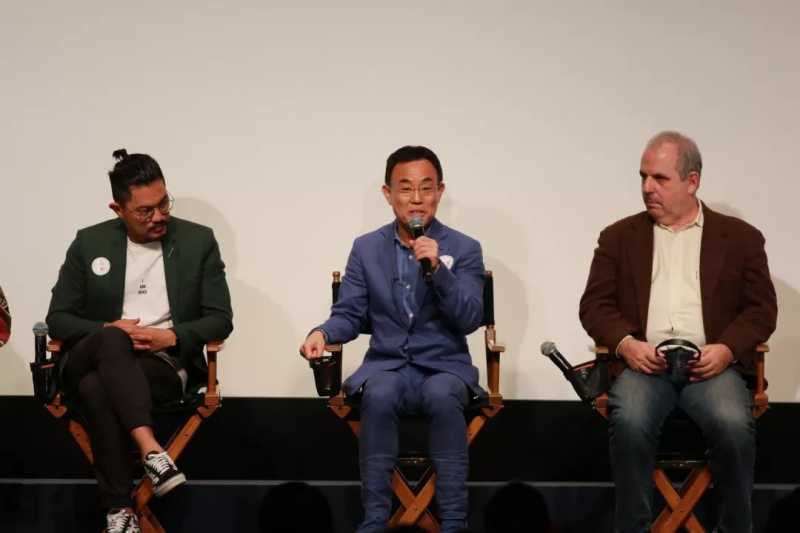 From left: Alex Dong, CEO of Sun Entertainment Culture Ltd.; Jack Q. Gao, Founding Partner and CEO of Beijing Times Digiwork Films Technology Co., Ltd and Co-founder of Smart Cinema; Bill Mechanic, Chairman and CEO of Pandemonium Films, Co-Chairman of the Chinese American Film Festival, Producer of Academy Award winning film, Hacksaw Ridge
From left: Alex Dong, CEO of Sun Entertainment Culture Ltd.; Jack Q. Gao, Founding Partner and CEO of Beijing Times Digiwork Films Technology Co., Ltd and Co-founder of Smart Cinema; Bill Mechanic, Chairman and CEO of Pandemonium Films, Co-Chairman of the Chinese American Film Festival, Producer of Academy Award winning film, Hacksaw Ridge
Dr. Jack Gao said with the popularization of watching films on hand held devices, audiences can enjoy movies anywhere without physically going to the actual theatre.
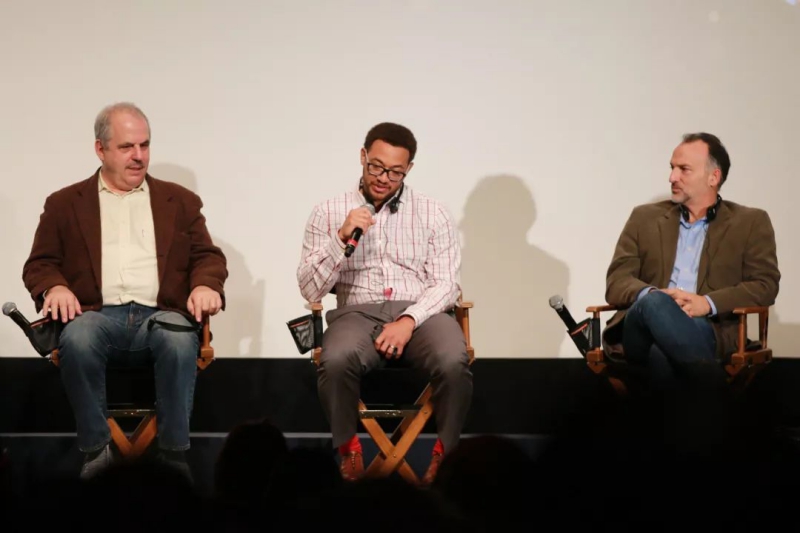 From left: Bill Mechanic, Chairman and CEO of Pandemonium Films, Co-Chairman of the Chinese American Film Festival, Producer of Academy Award winning film, Hacksaw Ridge ; Carl Rogers, SVP Of Feature Development and Acquisitions at Alcon Entertainment, Co-Producer on two-time Oscar winning film “Blade Runner 2049; Randy Greenberg, Executive Producer of The Meg, Owner/President of The Greenberg Group; John Penotti, Producer of Crazy Rich Asians and Hell or High Water, President of SK Global
From left: Bill Mechanic, Chairman and CEO of Pandemonium Films, Co-Chairman of the Chinese American Film Festival, Producer of Academy Award winning film, Hacksaw Ridge ; Carl Rogers, SVP Of Feature Development and Acquisitions at Alcon Entertainment, Co-Producer on two-time Oscar winning film “Blade Runner 2049; Randy Greenberg, Executive Producer of The Meg, Owner/President of The Greenberg Group; John Penotti, Producer of Crazy Rich Asians and Hell or High Water, President of SK Global
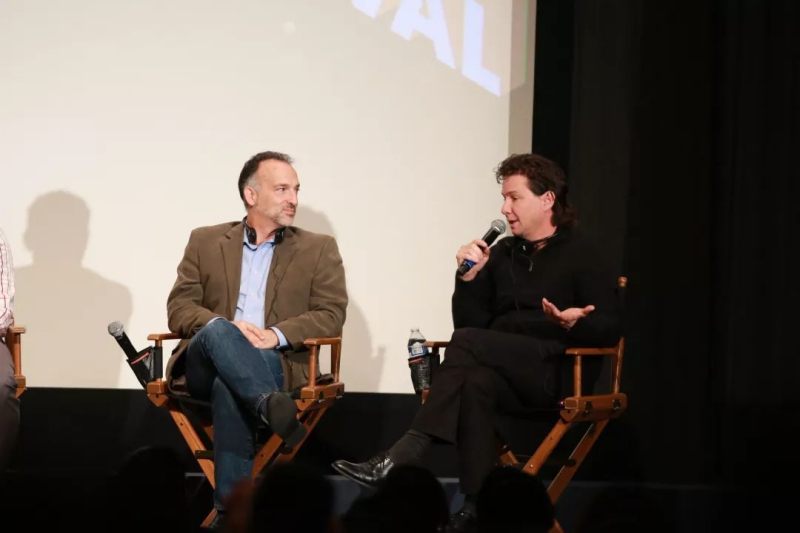
The topic of panel session two was “How to Build a Globally Successful Intellectual Property”. The Guests included: moderator, Maria Lo Orzel, Head of PGA’s China Task Force of Producers Guild of America; Wang Liping,Vice President of The China TV Arts Association; You Xiaogang, Chairman of China Television Drama Production Association and Famed Director; Adele Lim, Writer of Crazy Rich Asians; Bob Sabouni, CMO of Stan Lee’s POW! Entertainment; Devin Mann, Former Partner and Co-Head of Productions at WME, CEO and President of Iconic Talent Management; Rita Hsiao, Writer of Mulan, Toy Story 2; Milton Liu, Co-Founder of Kulture Machine, writer and producer.
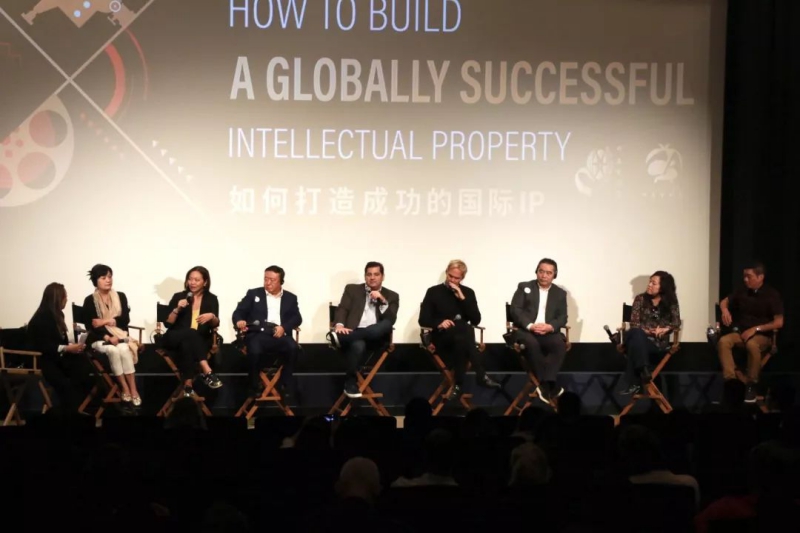
The panelists pointed out that the U.S. film and television industry has already formed a mature industry model, such as the superhero franchises and series that are based off comic books. Merchandising from the films based off comic books, include toys, clothing and many other products that include logos. The value of the merchandise surpasses the films themselves. The Chinese film and television industry is still in the early stages and will learn the franchising industry model from the U.S.
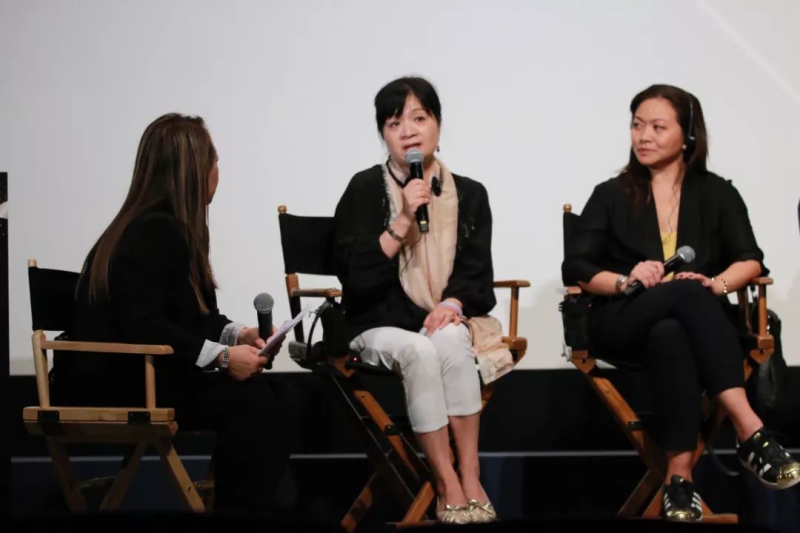 From left: Maria Lo Orzel, Head of China Task Force of Producers Guild of America; Wang Liping, Vice President of The China TV Arts Association, Famed Director; Adele Lim, Writer of Crazy Rich Asians.
From left: Maria Lo Orzel, Head of China Task Force of Producers Guild of America; Wang Liping, Vice President of The China TV Arts Association, Famed Director; Adele Lim, Writer of Crazy Rich Asians.
 You Xiaogang, Chairman of China Television Drama Production Association and Famed Director
You Xiaogang, Chairman of China Television Drama Production Association and Famed Director
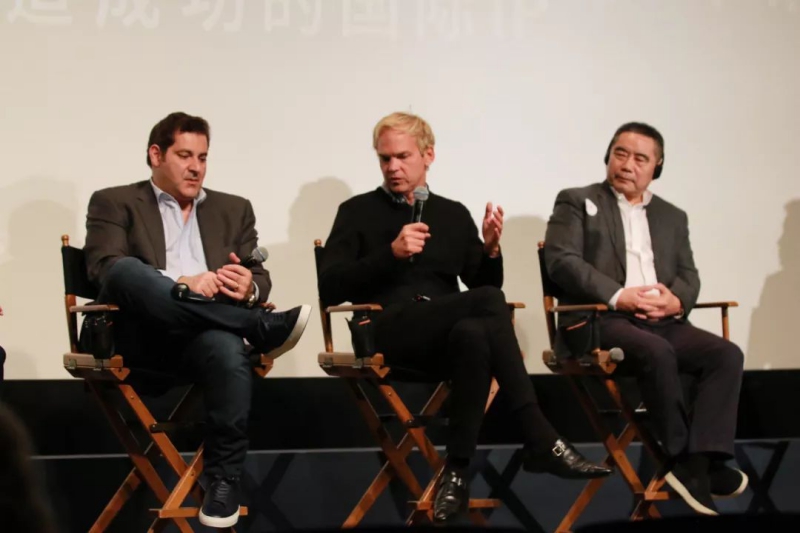 From left: Bob Sabouni, CMO of Stan Lee’s POW! Entertainment; Devin Mann, Former Partner and Co-Head of Productions at WME, CEO and President of Iconic Talent Management; Vice chairman of China Television Drama Production Industry Associate, Producer and Famed writer, Sun Yang
From left: Bob Sabouni, CMO of Stan Lee’s POW! Entertainment; Devin Mann, Former Partner and Co-Head of Productions at WME, CEO and President of Iconic Talent Management; Vice chairman of China Television Drama Production Industry Associate, Producer and Famed writer, Sun Yang
 From left: Sun Yang, Vice chairman of China Television Drama Production Industry Associate, Producer and Famed writer; Rita Hsiao, Writer of Mulan, Toy Story 2; Milton Liu, Co-Founder of Kulture Machine, writer and producer
From left: Sun Yang, Vice chairman of China Television Drama Production Industry Associate, Producer and Famed writer; Rita Hsiao, Writer of Mulan, Toy Story 2; Milton Liu, Co-Founder of Kulture Machine, writer and producer

The topic of panel session three was “Traditions and Innovations of Film/TV in the U.S. and China”. The guests included: Chair, Producers Guild of America International Committee, Elizabeth Dell; President of the Hong Kong Television Professionals Association, Siuming Tsui; Vice President of the China Television Drama Production Association Industry Association and President of Datang Brilliant Media Co., Ltd,Wang Hui; IEA Partners President & CEO,Liu Xiaolin; Director of Prison Break, Lost, Grey’s Anatomy and other Hollywood Film and TV projects , Bobby Roth; Executive Producer of The Walking Dead, Fear the Walking Dead and Partner/CEO of Skybound Entertainment, David Alpert; Professor at USC Film and TV at USC School of Cinematic Arts and Editor of The Movie Business Book, Jason E. Squire.
 Moderator: Elizabeth Dell, Chair, Producers Guild of America International Committee.
Moderator: Elizabeth Dell, Chair, Producers Guild of America International Committee.
 From left: Co-president of CAFF, President of the Hong Kong Television Professionals Association, famed director, Siuming Tsui; Director of Prison Break, Lost, Grey’s Anatomy and other Hollywood Film and TV projects,Bobby Roth; Vice President of the China Television Drama Production Association Industry Association and President of Datang Brilliant Media Co., Ltd,Wang Hui; Chairman of the America IEA , Liu Xiaolin
From left: Co-president of CAFF, President of the Hong Kong Television Professionals Association, famed director, Siuming Tsui; Director of Prison Break, Lost, Grey’s Anatomy and other Hollywood Film and TV projects,Bobby Roth; Vice President of the China Television Drama Production Association Industry Association and President of Datang Brilliant Media Co., Ltd,Wang Hui; Chairman of the America IEA , Liu Xiaolin
 From left: Executive Producer of The Walking Dead, Fear the Walking Dead and Partner/CEO of Skybound Entertainment, David Alpert; Liu Xiaolin, IEA Partners President & CEO; Professor at USC Film and TV at USC School of Cinematic Arts and Editor of The Movie Business Book, Jason E. Squire.
From left: Executive Producer of The Walking Dead, Fear the Walking Dead and Partner/CEO of Skybound Entertainment, David Alpert; Liu Xiaolin, IEA Partners President & CEO; Professor at USC Film and TV at USC School of Cinematic Arts and Editor of The Movie Business Book, Jason E. Squire.
The guests conveyed that no matter the differences between China and the U.S., innovation is a huge challenge for filmmakers. The content will be repetitive if only accommodating to the local market based on their culture. Innovation does not only involve the technical aspects but also the content. It will be the same result without creation and transcendence if it just simply fabricates each others strengths. For example, Chinese films have made huge investments for special effects used in American films but great movies need great stories. How to innovate within the content is a common challenge but also an opportunity for cooperation between the two countries to work together.






